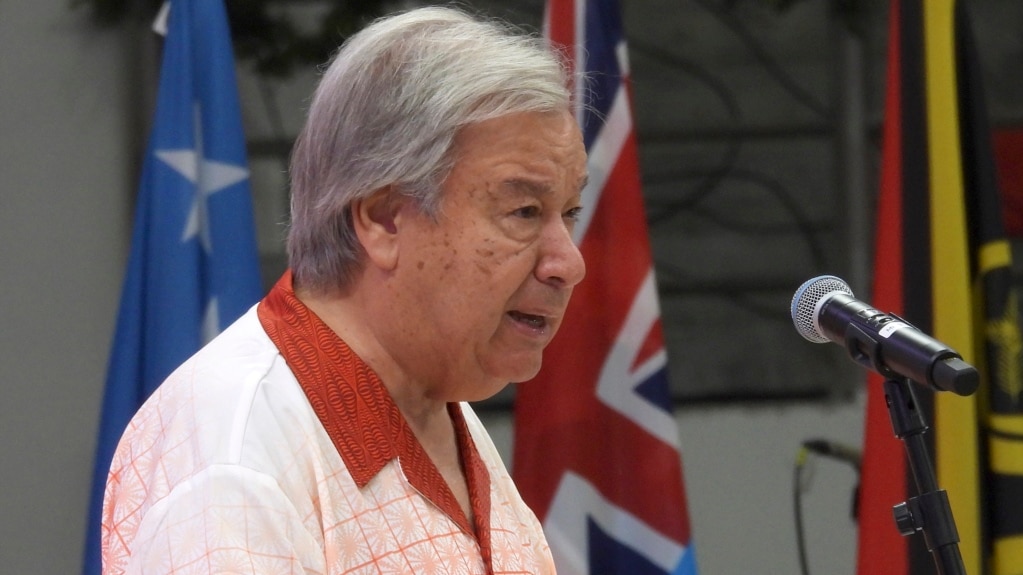United Nations Secretary-General Antonio Guterres says that rising ocean temperatures present urgent risks for people living in the Pacific Islands.
Guterres made the comment while at the Pacific Islands Forum taking place in Tonga. The country is a collection of about 170 islands in the southwestern Pacific Ocean.
The U.N. chief said studies suggest the southwestern Pacific faces more extreme sea level rise than other parts of the world. The problem, he added, is linked to sea temperatures in the area that in some cases are three times higher than worldwide levels.
Warmer temperatures cause water to expand and this can cause sea level rise.
"I am in Tonga to issue a global SOS – Save Our Seas – on rising sea levels," Guterres said.
The U.N. leader said that rising seas were "amplifying” the number and severity of storms and coastal flooding across the area. He said such flooding can destroy fisheries, damage crops and poison water. “All this puts Pacific Island nations in grave danger," he said.
A report recently released by the U.N.’s World Meteorological Organization showed ocean temperatures in the southwestern Pacific are increasing at up to three times the worldwide rate.
Guterres said the Pacific islands are especially at risk because much of their land is “just one to two meters above sea level."
And, he added, "Half the infrastructure is within 500 meters of the sea."
Many scientists blame the planet’s rising temperatures on pollution from fossil fuel use. Guterres said the Pacific Islands can expect additional sea level rise of 15 centimeters by 2050 if the pollution levels do not drop.
Guterres urged world leaders to greatly increase the level of climate-related investments, especially for at-risk countries, to help fight the problem.
Delegates to the 2023 U.N. climate change conference approved the establishment of a "loss and damage" fund to help poor nations deal with climate disasters.
"Developed countries must deliver on their finance commitments,” Guterres said. He added that one commitment calls for doubling financing to at least $40 billion a year by 2025.
I’m Bryan Lynn.

